
Experts from City of Hope explain the importance of symptom management and care planning during cancer.

Experts from City of Hope explain the importance of symptom management and care planning during cancer.
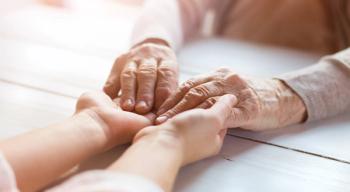
One expert explains how caregivers are a vital part of the care team during a clinical trial.

Accepting the unknown and understanding why random things happen helps me be hopeful as my daughter reached five years of cancer survivorship.

A digital tool for caregivers of patients with cancer in hospice care significantly reduced some of the caregiver burden while improving their mood.

CURE® editors discuss last week’s biggest cancer headlines, from Dexter Scott King’s death to the potential of laughter therapy to boost quality of life.
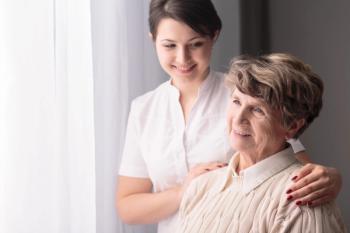
This study assessed the impact of laughter therapy in both patients with cancer and caregivers, and both groups showed decreases in mood disturbances, in addition to decreases in pain for patients and in burnout for caregivers.
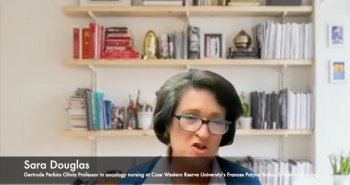
One expert explained how nurses have “opportunities to get to talk with patients and their loved ones in ways that you don't (get) when you're in the time crunch of an appointment with your oncologist,” and how that can impact end-of-life care.
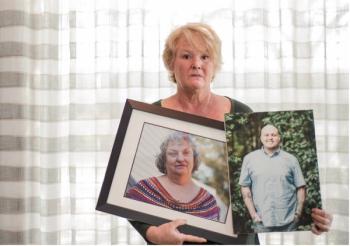
Those caring for loved ones with cancer are “at risk for becoming overwhelmed or becoming so burdened to the point of exhaustion or being sick themselves,” one expert says.
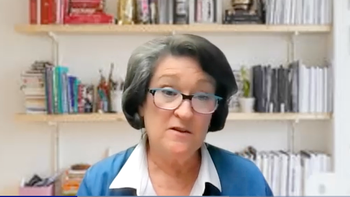
One expert explains how patients’ wishes for their end-of-life care can change with time, making those conversations with caregivers “not a one-time, sit-down discussion.”

A new study aims to answer questions regarding end-of-life care for patients with stage 4 cancers and their caregivers.

Cancer caregivers go through trauma that is often unseen and unrecognized, though some organizations are trying to change that.

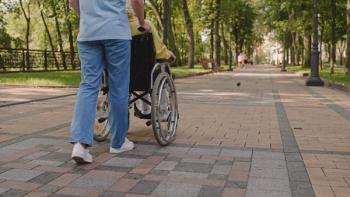
When both a patient and their loved one acting as their caregiver are facing cancer, “there has to be proper care for both,” one expert tells CURE®.

Most oncology clinics screen for psychosocial distress among patients with cancer, but the same can’t be said for their caregivers, recent research found.
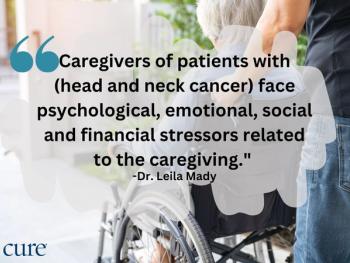
Caregivers of patients with head and neck cancer tend to face severe stress and burden related to their jobs, and it’s essential to implement more work-life balance.

Caregiver burden was prevalent among caregivers of patients with head and neck cancer, due to lack of patient employment and poor health-related quality of life.
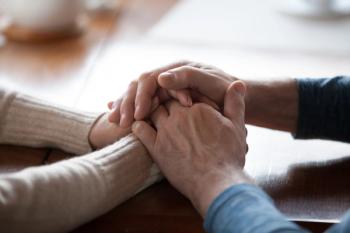
Patients and their caregivers may benefit from community support and education following an MPN diagnosis

After my daughter was diagnosed with cancer, I began to share my experiences through writing, and through that I found camaraderie — and heartbreak.
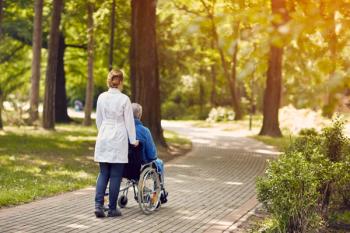
Hospice care can be a valuable resource for patients with late-stage cancer who want to improve the quality of the rest of their life.

As a mom, I have the “worry gene,” though it got much worse when my daughter was diagnosed with cancer.

Many cancer centers and nonprofit organizations offer resources for patients with cancer and their caregivers to see the support they need to navigate diagnosis, treatment and survivorship.
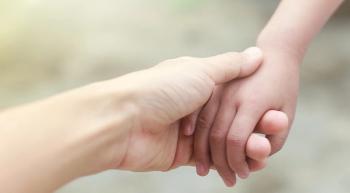
Children and young adults often take on more responsibility when their parent is diagnosed with cancer. A recent study surveyed these young carers about their experience.

The financial stress from a colorectal cancer diagnosis can negatively impact sleep and pain tolerance in partners of patients with colorectal cancer, recent research showed.

A patient with head and neck cancer highlights the importance of a strong support system throughout the time he was recovering from surgery.
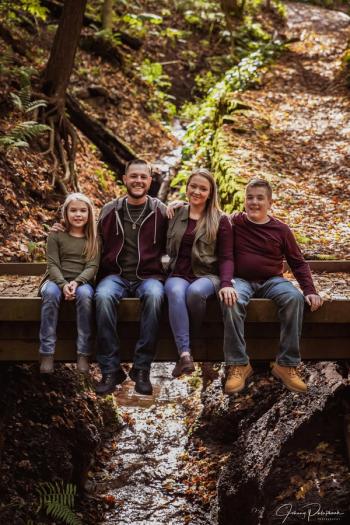
After being given 2 years to live by her oncologist, a mother of two children is trying her best to protect her family — and herself — from thinking too negatively despite having rare gastrointestinal cancer.

After leaving the hospital, I craved the security and support my cancer care team provided me.

As caregivers become more integrated into the health care delivery process for patients with cancer, their own needs should still be focused on pertaining to mental and physical health.

We recently asked our audience how they advocate for themselves and others in the oncology space. Here’s what they had to say.

Even after my son survived cancer, I still had fears — and nightmares — of the worst.
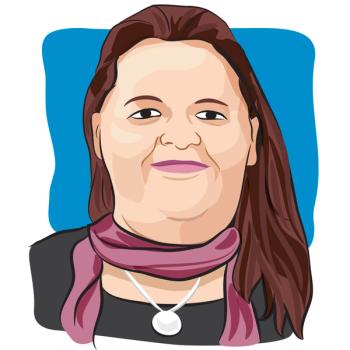
Cancer-related decisions put strain on relationships between myself and family members.